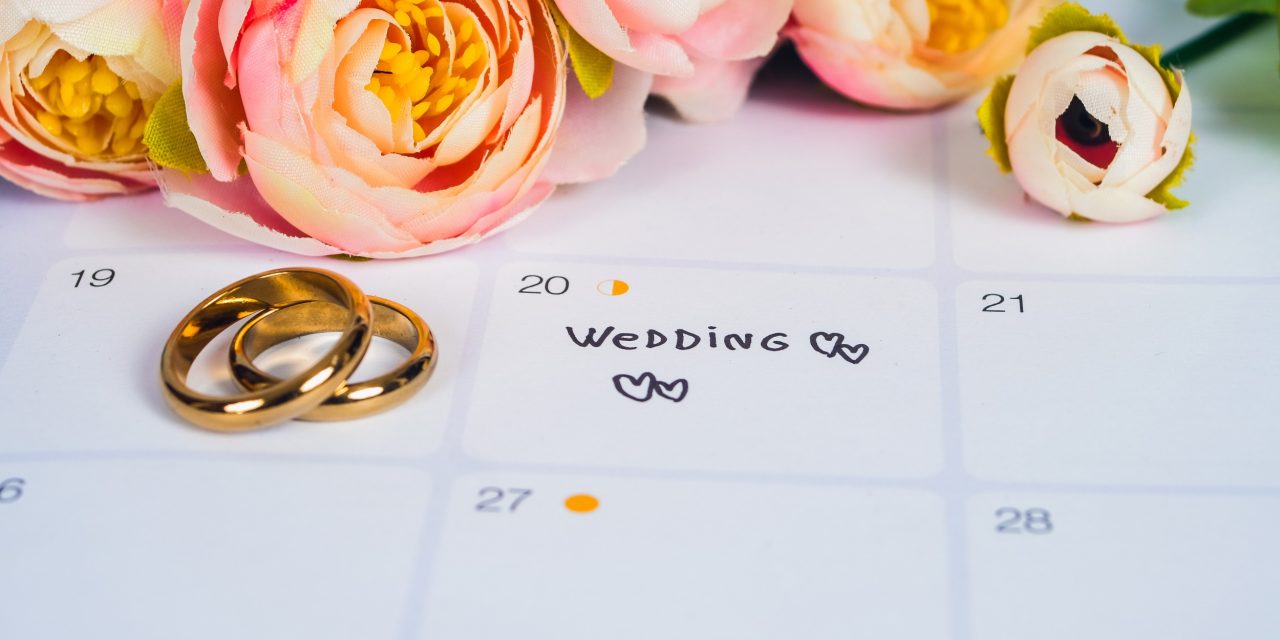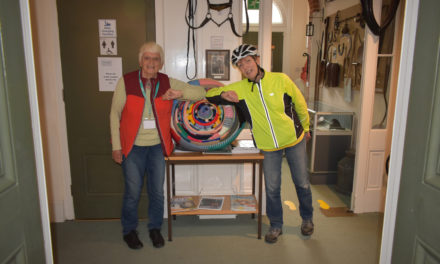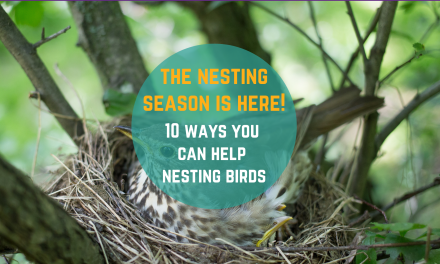A wedding is a joyous occasion to celebrate, and there are many eco wedding suppliers to consider but it is finding the right one. To find the businesses that you can trust and believe in, research is needed before you jump in and pay that deposit. Here are some key things to consider when planning for a wedding and to make it as environmentally friendly as possible.
Location, Location, Location.
I would start with the location. Pin point where your local suppliers are, the closer they are the less driving is needed. If there is one business you know you want to work with but the distance is a bit further, ask them if they can do some appointments on-line, it saves fuel but it is also kinder to the planet the less you travel.
The dress
One of the most important aspects of the wedding is a dress and there is a wide range of dresses out there and at different price points. I have compiled some questions to ask your designer or boutique manager to find information on their sustainable credentials.
Ask the following:
- Where are their clothes made? It would be better if dresses are made in Britain to reduce the carbon footprint but also it would be better to understand the seamstresses work conditions and pay. This will reflect the price of the dress.
- Where are their wedding dresses stocked? UK or worldwide? The number of dresses stocked worldwide would have a negative effect on the environment.
- Which fabrics are used to make a dress and where do they come from? Many fabrics are made in China or India, however there are companies that design and make fabrics in the UK. I would do a little background research and ask if your boutique can tell you the conditions of the factories and where the fabrics are made. Peace silk is vegan and doesn’t harm the silkworm in production and organic fabrics are best. Llook out for these signs: the Global Organic Textile Standard (GOTS) and Oeko-Tex. Certain fabrics, like satin or crepe polyester and acrylic is derived from synthetic fibres which are not biodegradable. A better choice would be to buy a wedding dress made from recycled bottles, an even better choice would be peace silk or organic fabrics.
These questions will help brides to interpret whether brands are green washing i.e. using marketing strategies to forge an eco-image.
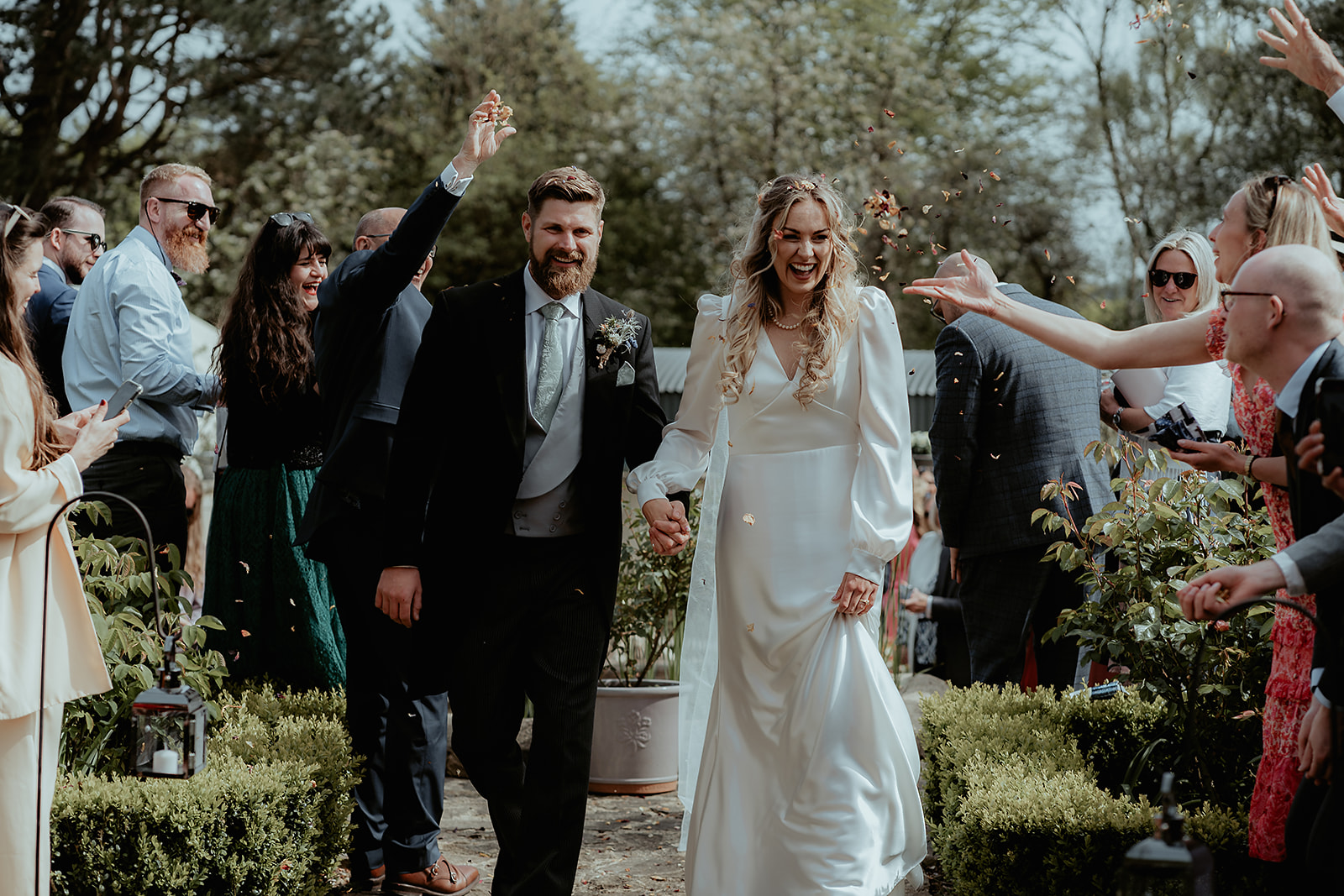
Image: Jade’s Bespoke wedding dress, made from recycled milk bottles and lined with bamboo. Jessica Turner Designs based in Long Crendon.
The Flowers
Seasons are important when choosing your flowers. It is best to have a florist that works with seasons and UK grown if possible. This will help reduce imported flowers from other countries and it should bring the cost down too. One overlooked area is the floral foam. Floral foam can be damaging to the environment but there are alternatives out there. Ask your florist about this and what options they offer.
Decorate your flowers with beautiful off-cuts of fabric. I give my beautiful brides ribbons for their bouquets from the left-over dress material. Peace silk chiffons work especially well and dye easily too. This is a great way to have consistency in your wedding theme and also reduce wastage. Also, get your friends and bridesmaids to dry any petals they have, at least 6 months in advance so you can collect enough and then you have bio-degradable confetti.
You could also plan to grow your own flowers for your wedding. I went to a particular wedding where the folliage AND flowers were both from the bride’s garden.
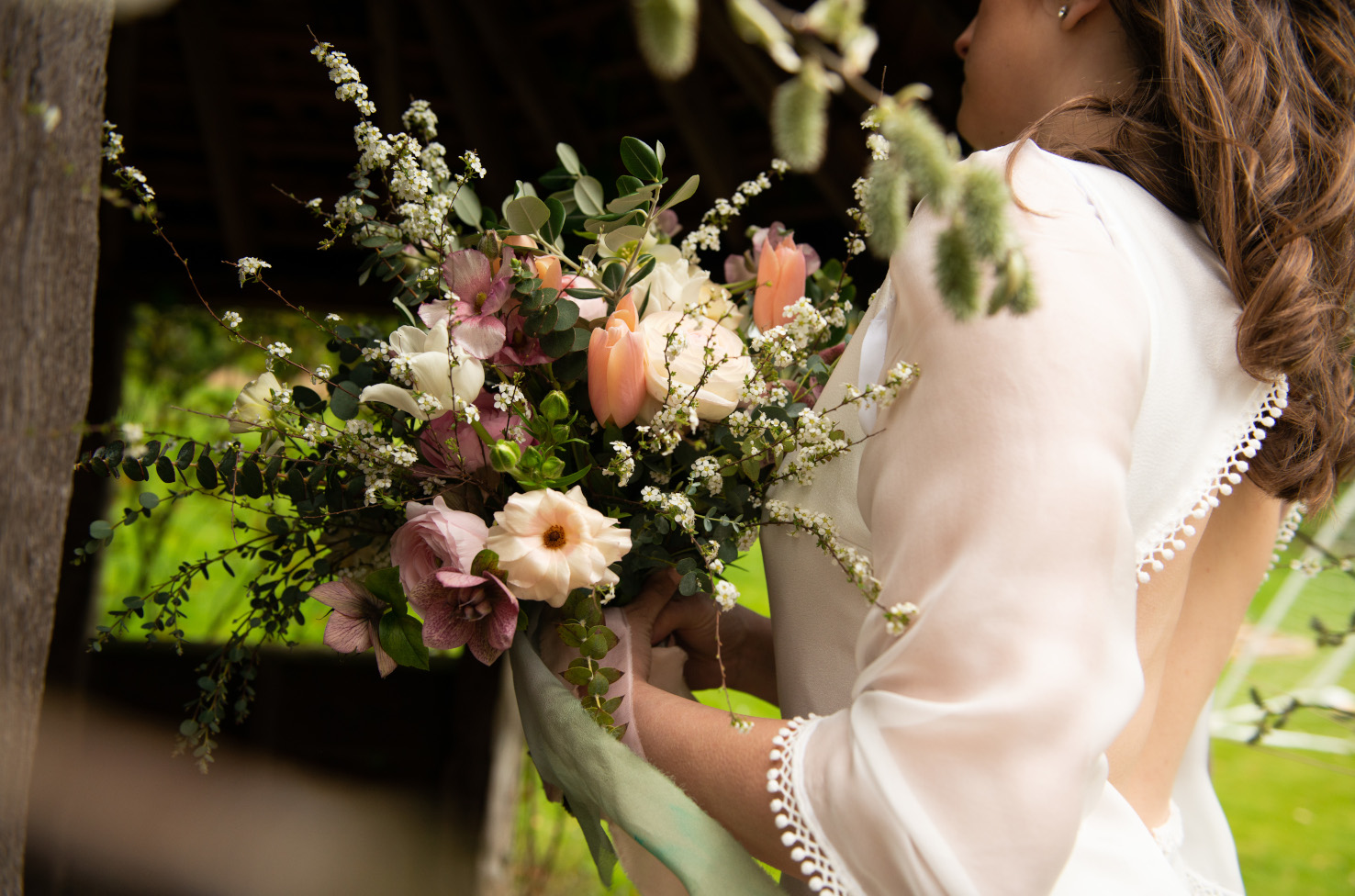
Image above: Flowers by Bicycle Blooms, Spring. Dress by Jessica Turner Designs and made from Peace silk and recycled cotton.
The Venue
As I mentioned before; location, location, location. Try to use a local area where possible to minimise transport – it could be your local area or an area where most of your family are located. Also, consider where all your guests are coming from, how they are travelling and where they are staying to avoid ramping up the carbon footprint of your wedding.
The time of year can make a difference too. If you get married in the summer months then you have longer days and less need for lighting or heating.
If you have a venue in mind, there’s one simple but very effective question you can ask your venue: What steps do they take to ensure the venue is as green as possible?
See what they say and how you feel about it.
The Food
Sustainable food starts at the source. Caterers should be able to tell you where their food comes from and how their food is made. Look for caterers that use homegrown foods and local butchers that have high animal welfare practices. For the menu on your wedding day it would be a good idea to have lots of vegetarian options with a small number of meat options. I think it is a good idea to try to cut down on meat consumption, it also might bring the price down a little. Don’t have single-use plastic cutlery and plates, and it would be a good idea to speak to your caterer and suggest a food compost bin for any food scraps.
The Hair and Make Up
To keep your wedding as eco-friendly as possible I would use a local artist. It is hard to find natural make up that lasts for the whole day so it is worth asking if you can trial a few organic or natural products first but if they don’t work then at least you have chosen to work with someone local.
Summary
Reducing wedding waste: plastic, meat and travel, is very beneficial for the environment and it should be considered when planning your wedding day. Recycling is also very important, so try to recycle as much as possible or rent items. Keeping things local is key and also helps your local economy and small businesses.
I hope some of these tips are useful and that they will inspire you to plan an eco-wedding.
About Jessica Turner
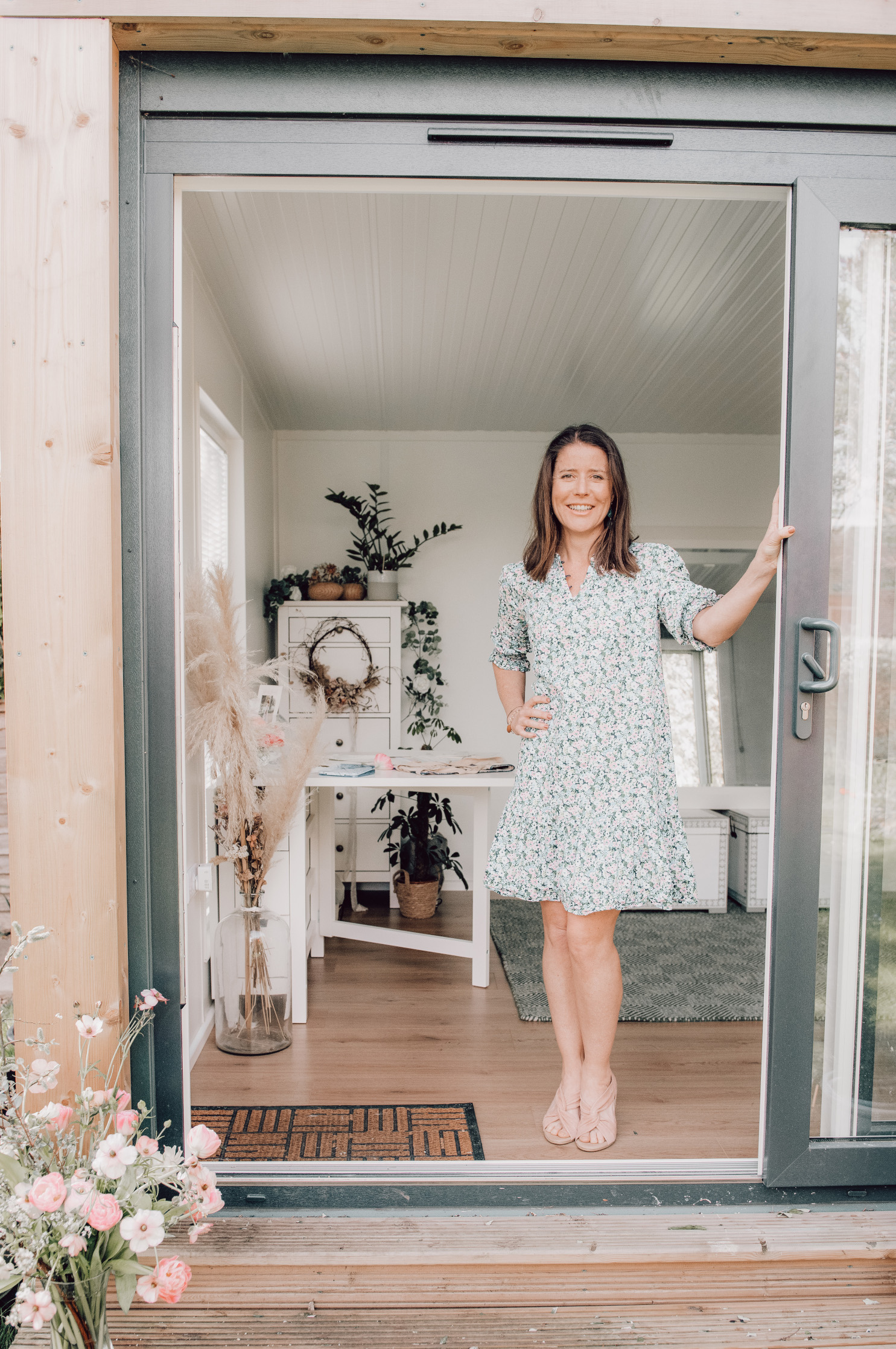
Jessica Turner Designs (@jessturnerdesigns), a local bespoke bridal designer in Long Crendon has sustainability at her core. Jessica only makes two new wedding dresses for her yearly collections to keep the use of raw materials, and often recycles old pieces. Jessica beautifully paints the rest of her wedding dress collections on hand-made paper. These are matched with fabric swatches to support slow bridal fashion. Jessica offers a sketch to bride service, where dresses can be made with either Peace silk, recycled fabrics and lined with organic cottons or bamboo. Jessica clearly demonstrates that fashion companies can work at a slower pace and still gain a positive, rewarding outcome.
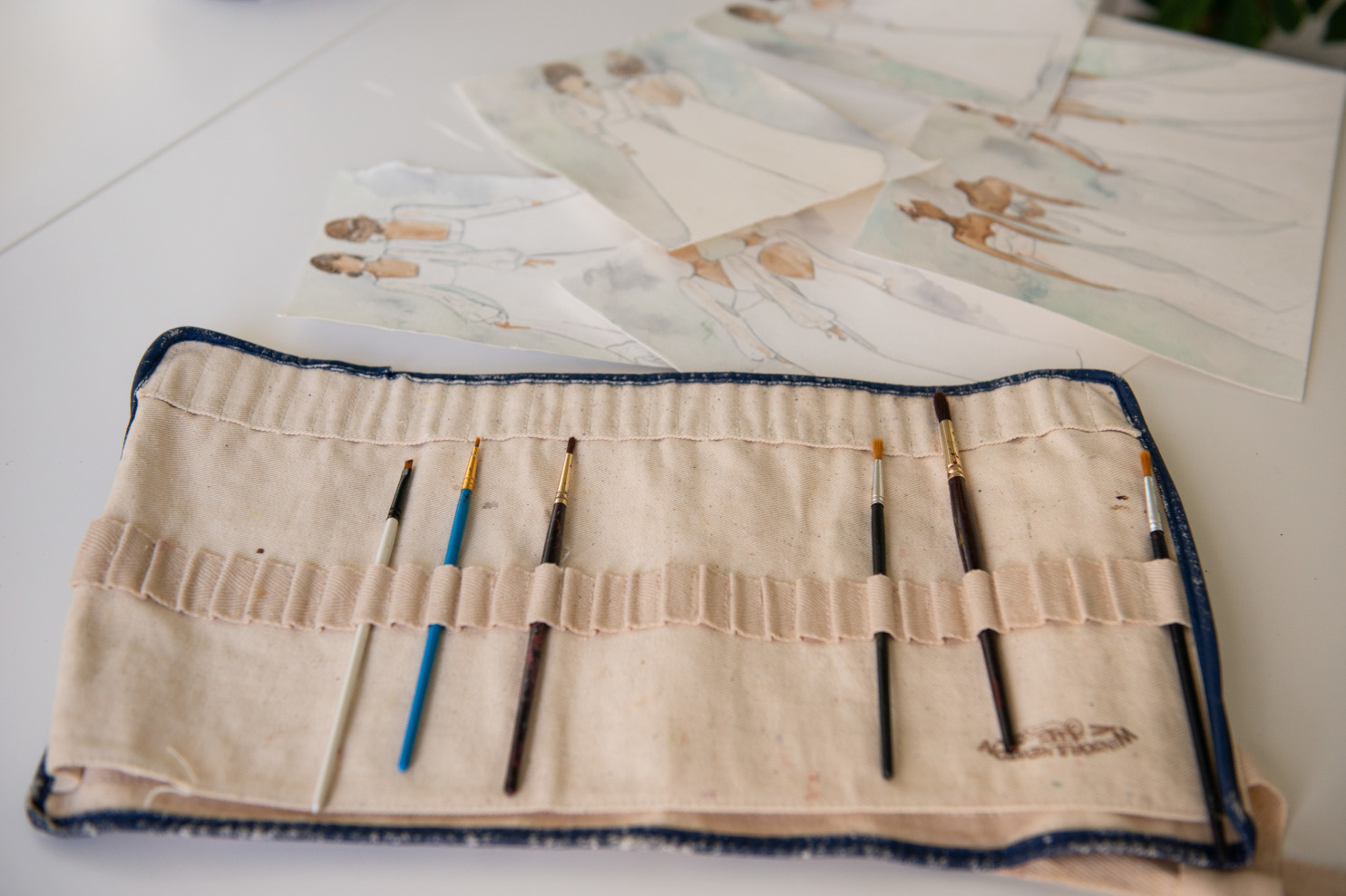
Image above: Jessica’s Yearly Collections on Paper.

